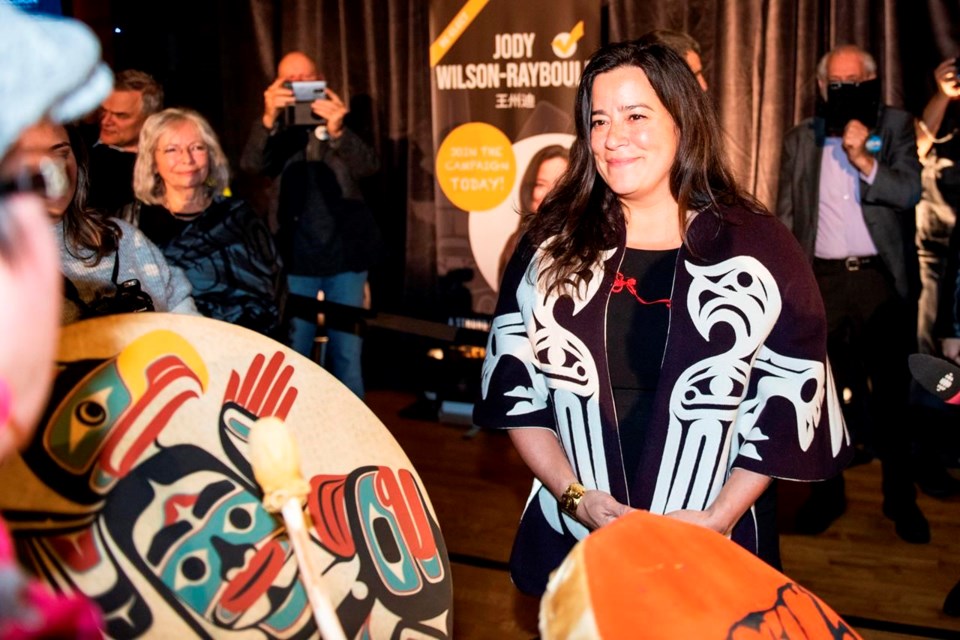OTTAWA — Jody Wilson-Raybould says when governments make promises around reconciliation they must be willing to do the "real work" to see them achieved.
That means, said Wilson-Raybould, governments have to recognize that reconciliation won't happen without recognizing Indigenous rights.
"No government has done the transformative work of recognizing Indigenous Peoples' rights and enabling Indigenous Peoples to exercise their inherent rights," she said in an interview this week.
"No government has done that even though governments, including the one I was part of, promised to do that."
Wilson-Raybould is a former MP who made history in 2015 as Canada's first Indigenous justice minister. In her new book, "True Reconciliation: How to Be a Force for Change," she explores what a real recognition of Indigenous rights looks like.
She acknowledges it's different from her last book — a political memoir chronicling her rise in the Liberal Party of Canada to her eventual departure from Prime Minister Justin Trudeau's government over the SNC-Lavalin affair in 2019.
Wilson-Raybould left federal politics in 2021 after sitting for more than two years as an independent MP. She says she began writing her new work in May in response to an increasing number of people approaching her to ask how they can help advance reconciliation.
"I actually think that people will gravitate toward this book, not for necessarily juicy details in terms of the political realities that I went through," she says. "Reconciliation is a word that's talked about, Indigenous issues have been elevated, so much more so than ever in my lifetime of advocacy."
Wilson-Raybould found herself fielding more inquiries on the topic since First Nations across Western Canada began announcing the presence of unmarked graves at former residential school sites.
"I can actually feel the desire of individuals, which is where the change happens, wanting to actually do something."
She said she wants people to view reconciliation between Indigenous and non-Indigenous Peoples as "a call to action to all of us," regardless of the government in power.
When it comes to the current federal one, Wilson-Raybould reflects in the book about the signature pledge she says she heard the most about from Trudeau, which was to eliminate all long-term drinking water advisories on First Nations by March 2021. It is a pledge he first made before the Liberals formed government in 2015.
It's one that has yet to be fulfilled. As of Tuesday, Indigenous Services Canada reported 31 long-term advisories still in place across 27 communities. It says it has lifted 136 long-term advisories since November 2015.
But Wilson-Raybould said even if the government has lifted some of the advisories, some have also been reinstated.
In the book, she points to the broken promise as an example of a government viewing reconciliation as a "sprint" that can be advanced by spending billions of dollars.
But Wilson-Raybould says reconciliation is a "marathon" requiring changes so Indigenous people are allowed to effectively govern their own communities.
"That specific promise and then the re-promising in terms of more injection of money, and the changing of the timelines does do a disservice to the actual real work that needs to be done," she said Tuesday.
Last year, Indigenous Services Canada Minister Patty Hajdu told The Canadian Press it was her hope that all long-term boil advisories would be lifted by 2025, which is when a supply and confidence deal struck between the minority Liberals and federal New Democrats is set to expire.
This report by The Canadian Press was first published Nov. 8, 2022.
Stephanie Taylor, The Canadian Press



